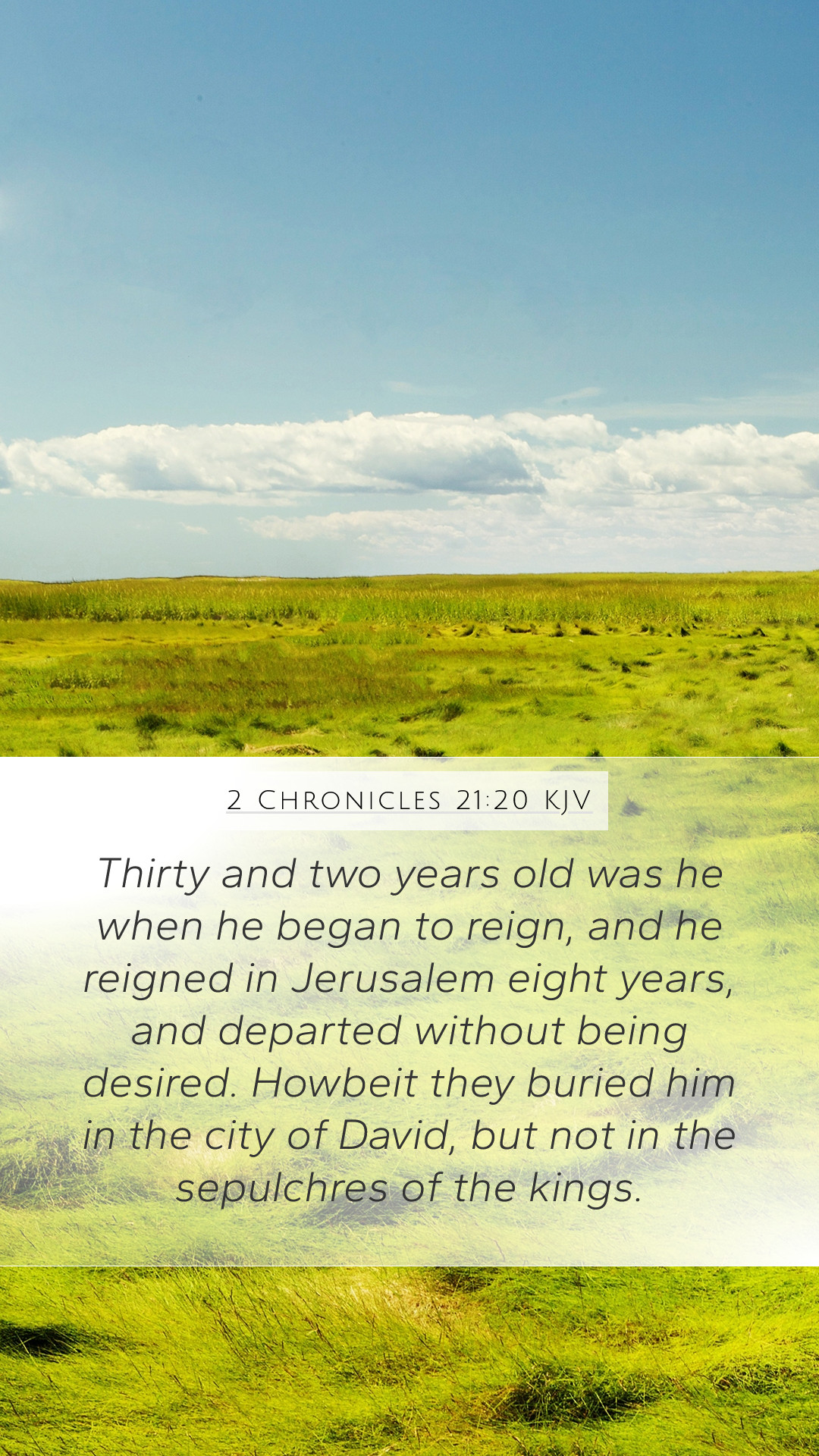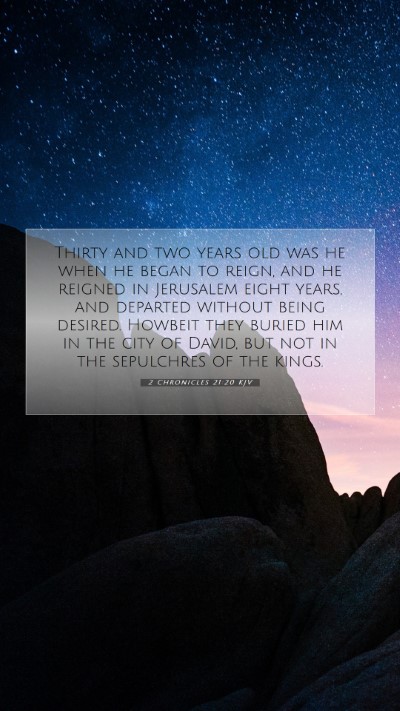Understanding 2 Chronicles 21:20
The verse 2 Chronicles 21:20 reads:
"He was thirty-two years old when he became king, and he ruled in Jerusalem eight years. He died to no one's regret and was buried in the City of David, but not in the tombs of the kings."
This verse encapsulates the life and legacy of Jehoram, the king of Judah. It summarizes his reign, highlights the manner of his death, and signifies the lack of mourning that accompanied his demise. To gain a deeper understanding of this passage, we explore insights from various public domain commentaries such as those by Matthew Henry, Albert Barnes, and Adam Clarke.
Overall Meaning of 2 Chronicles 21:20
The overarching theme of this verse involves themes of leadership, legacy, and divine justice. Jehoram's reign was marked by apostasy and moral failures, leading to a legacy that elicited no sorrow at his death.
Commentary Insights
Matthew Henry's Commentary
- Leadership Qualities: Henry emphasizes that Jehoram's character was not one of righteousness, as he led Israel into idolatry, particularly by marrying Ahab's daughter. This reflects a significant error in judgment and forsaking God.
- Forgotten King: The phrase "died to no one's regret" reflects the disdain the people felt towards him. Henry argues this was indicative of divine retribution for his sinful actions.
- Burial Significance: Henry notes that Jehoram's burial outside the royal tombs signifies his disgrace and alienation from the righteous kings of Judah.
Albert Barnes' Commentary
- Impact of Apostasy: Barnes elaborates on the detrimental effects of Jehoram's alliances with Ahab's dynasty, which led to idolatrous practices and detracted from his kingship.
- Divine Judgment: The commentary stresses that the absence of mourning at Jehoram's death served as a tangible reminder of God's judgment upon those who stray from His commands.
- Historical Context: Barnes places this verse into the historical context of Judah's kings, pointing out the contrast between Jehoram and his forefathers who were more faithful to God.
Adam Clarke's Commentary
- Vain Reign: Clarke speaks to the nature of Jehoram's rule, describing it as relatively unproductive and shadowed by his predecessors' achievements.
- Final Years: Clarke emphasizes the significance of Jehoram's short reign, citing it as an example of the fleeting nature of power and the importance of leading with integrity.
- Rejection by the People: The absence of public mourning is underscored in Clarke’s analysis as reflective of the people's view of Jehoram's failures.
Spiritual Lessons from 2 Chronicles 21:20
This verse offers several spiritual lessons and applications for today’s believers:
- Integrity in Leadership: The narrative reminds current leaders in both spiritual and secular realms of the importance of maintaining integrity and obedience to God.
- Legacy Matters: Jehoram's legacy serves as a cautionary tale that actions in leadership have lasting impacts on how one is remembered.
- Divine Justice: The absence of mourning after his death illustrates the reality of divine justice; it reinforces that those who act against God will face consequences.
Related Bible Cross References
- 2 Kings 8:16-24: This passage details Jehoram's rise to power and further context for his reign.
- 2 Chronicles 22:1-9: Details the succession of Ahaziah and the impact of Jehoram's actions on his lineage.
- 1 Kings 22:51-53: More about the kingship of Ahaziah, Jehoram's son, illustrating the continued trend of apostasy.
Conclusion
In conclusion, the study of 2 Chronicles 21:20 provides rich insights into the nature of kingship, the consequences of disobedience, and the importance of being remembered favorably in leadership. Through the lens of scriptural analysis and commentary, believers are urged to reflect on the integrity of their actions and the legacies they leave behind.


